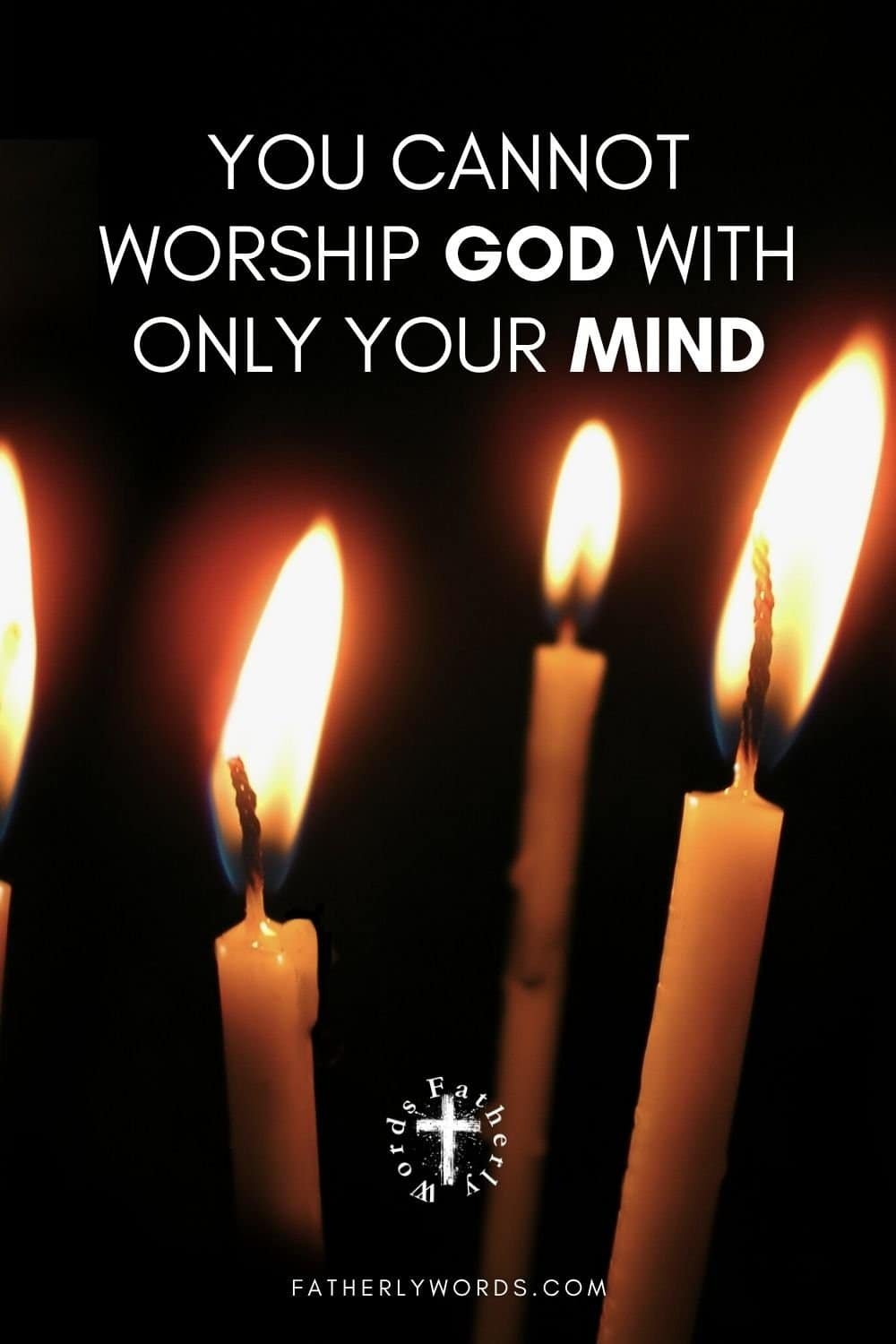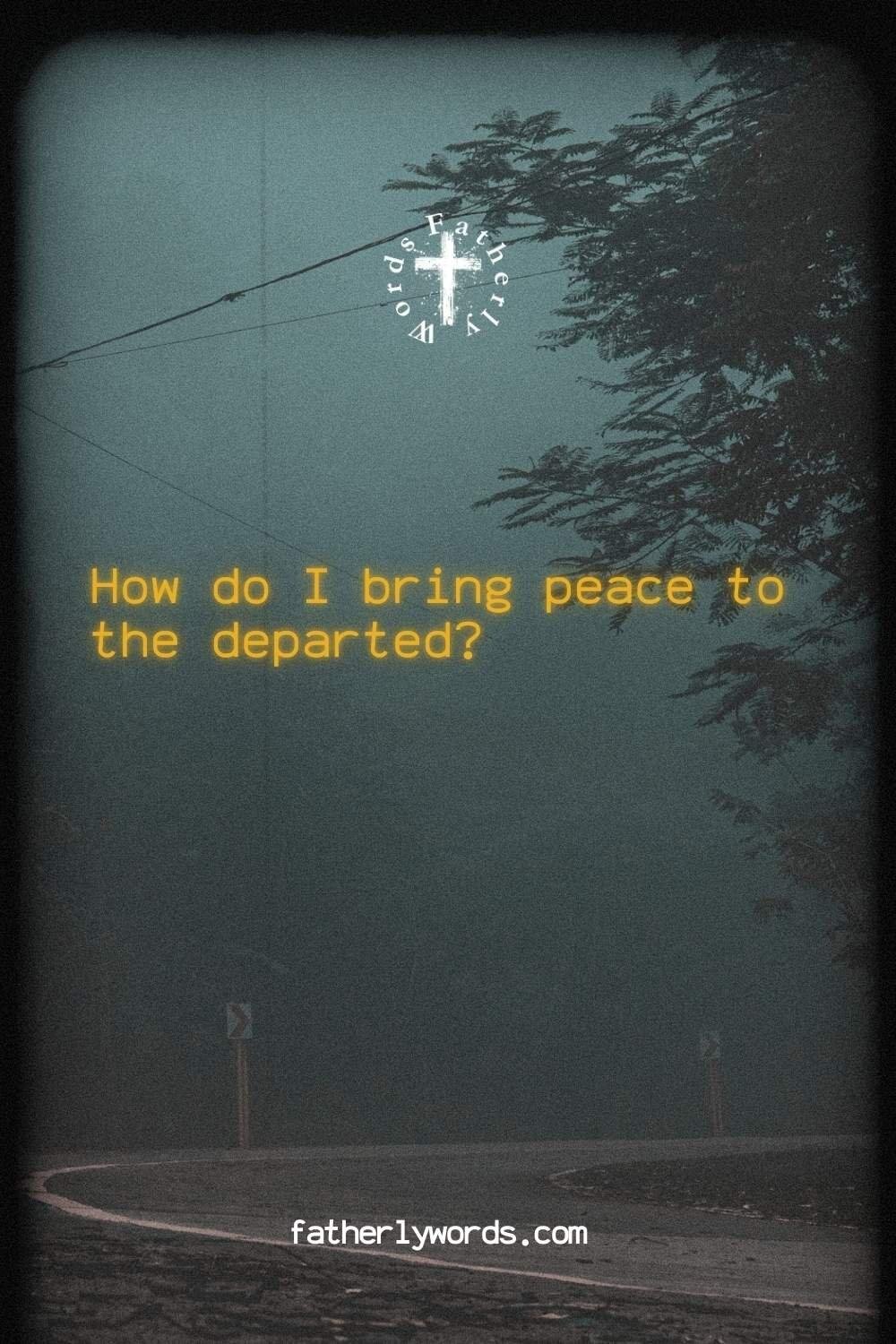The truth about the state of the soul after death is meant to give us both sobriety and hope, so that we live according to Christ and prepare for eternal life.
In Orthodox Christianity, this concern is not treated with curiosity or imagination but with the clear teaching of Holy Scripture, the words of the Holy Fathers, and the life of the Church.
The Journey of the Soul After Death
When the soul departs from the body, it immediately enters into the state that God allows.
As Saint John Chrysostom teaches, the soul does not remain on earth to wander or to watch over the living but is taken to its proper place, either to the state of repose and joy that is Paradise, or to the state of darkness and suffering that is Hades.
The Lord Himself described this in the parable of the rich man and Lazarus (Luke 16:19-31). Lazarus was taken by angels into the bosom of Abraham, a place of comfort, while the rich man found himself in torment and cried out for relief.
This shows clearly that the soul does not remain in contact with earthly life but is led into the reality of the afterlife.
Until the Final Judgment and the general Resurrection, souls do not yet enjoy the fullness of the Kingdom of Heaven nor suffer the final reality of Hell.
Instead, they experience an intermediate state: a foretaste of joy or of torment. As the Apostle Paul reminds us:
“We must all appear before the judgment seat of Christ”
2 Corinthians 5:10
The fullness will only come when Christ returns in glory and raises all from the dead.

The Reality of Separation
One of the great torments of Hades is loneliness and lack of communion.
The Fathers describe it as an absence of the vision of other persons. Just as the rich man in the parable could not truly be with Lazarus, so every soul in Hades experiences isolation.
The Psalms describe this reality:
“In death there is none that remembereth Thee, and in Hades who shall give Thee thanks?”
Psalm 6:6. LXX
The absence of communion with God and with others is the deepest pain of the soul. Saint John Chrysostom wept not primarily at the torments of Hell but at the loss of the vision of Christ’s gentle face. The torment of separation is greater than fire or darkness.
This means that the departed do not hear our conversations, see our activities, or know our earthly thoughts. They are not spirits that wander among us. God in His wisdom has set boundaries, and the soul moves beyond this life into its new reality.
The Joy of Paradise
In contrast to the loneliness of Hades, the souls of the righteous enter into Paradise. Even before the Resurrection of the body, they taste the joy of communion with the saints, the angels, and the presence of Christ.
They may not see or hear the events of the world, but they live in a state of light and prayer.
The Book of Revelation speaks of this joy:
“They shall see His face, and His name shall be on their foreheads”
Revelation 22:4
This vision of Christ is the greatest happiness of Paradise. Saint John writes again:
“We shall see Him as He is”
1 John 3:2
The Fathers stress that the blessedness of eternal life is not simply a place of joy but the personal encounter with Christ Himself.
This is why even in this intermediate state, before the Resurrection, the saints are alive in God. Christ Himself said:
“God is not the God of the dead, but of the living, for all live to Him”
Luke 20:38
The saints are alive, and though they do not walk among us, they are united to Christ and therefore capable of interceding for us.
The Intercession of the Saints
Orthodox Christianity teaches that the saints do not hear us in a human way. They do not physically listen to our words. Instead, by the will of God, through the ministry of the angels, and by the mysterious grace of the Holy Spirit, they know the prayers directed to them.
When we pray, “Holy Great-Martyr Demetrios, pray for us,” we are not expecting the saint to hear our voice with ears as we do on earth. Rather, God Himself, who desires to glorify those who glorified Him, makes our prayer known to the saint, and the saint intercedes before God’s throne.
The miracles that follow are God’s response, not a natural human action. As Saint John of Damascus said:
“The saints are alive and near to God, and what they ask from Him, He grants for the benefit of the faithful.”
This shows the communion of the Church that is never broken, not even by death.
Why the Departed Do Not See Earthly Life
It is common in popular thought to imagine that the dead watch over the living, listening to their words or following their actions.
In Orthodox Christianity this is rejected.
The departed cannot see or hear us directly. If this were true, then the loneliness of Hades would not exist. The Fathers insist that one of the punishments of Hades is precisely the lack of communion, the inability to see another person.
The image is given in the sayings of the desert Fathers: two men bound back-to-back, unable ever to see each other’s faces. This expresses the torment of separation. The soul awaits the Resurrection, when body and soul will be reunited, and communion will be restored in either eternal joy or eternal sorrow.
Differences Between The Modern World And Orthodox Christianity On This Question
- The modern world often imagines the dead as watching over their families. Orthodox Christianity teaches that the soul is separated and cannot see earthly life.
- The world views death as a spiritual continuation of earthly emotions. Orthodox Christianity teaches a radical separation until the Resurrection.
- Many think that the dead can send messages or signs. Orthodox Christianity rejects this and warns against spiritual deception.
- Popular culture celebrates mediums and communication with the dead. Orthodox Christianity teaches this is demonic and forbidden.
- Modern thought reduces Paradise to a vague comfort. Orthodox Christianity reveals it as the vision of Christ’s face.

- The world sees Hell as simply punishment. Orthodox Christianity shows it as the absence of communion and love.
- Modern thought believes the dead rest in peace automatically. Orthodox Christianity teaches that the soul’s state depends on repentance and God’s judgment.
- Society often treats prayers for the dead as symbolic comfort. Orthodox Christianity insists that prayer truly helps the departed through God’s mercy.
- The modern world speaks of “guardian spirits” of ancestors. Orthodox Christianity teaches that only God and His holy angels protect us.
- Popular culture imagines equality in death. Orthodox Christianity teaches a clear distinction between the righteous and the unrepentant.
Preparing For Eternity
The knowledge that souls do not see or hear us but are taken immediately to their place after death should inspire sobriety. We cannot rely on the imagined presence of ancestors to comfort us.
Instead, we must rely on Christ, His Church, His sacraments, and the prayers of the saints.
Saint Gregory the Theologian wrote:
“Yesterday I was buried with You, O Christ; today I rise with You by Your Resurrection.”
The faithful prepare for eternity by repentance, confession, Holy Communion, and prayer.
Death is not the end but the beginning of eternal life.
Explaining This To Children
Parents may wonder how to share these deep truths with their children. The key is to speak simply. One can say: “When someone dies, their soul goes to be with God. The soul cannot see or hear us anymore.
If they loved Christ, their soul is in Paradise with Jesus and the saints.
If they did not love Christ, the soul is sad and far away from Him.
This is why we pray for those who have died, so that God will have mercy on them. And we also ask the saints to pray for us, because they are alive with God.”
Children should be taught that death is not frightening when we live close to Christ. They should be comforted that the saints and angels are with us, and that Christ is always near.

Dive Deeper: